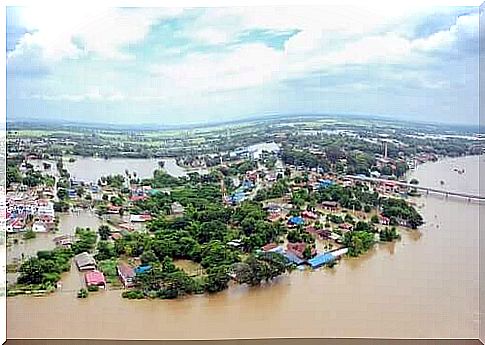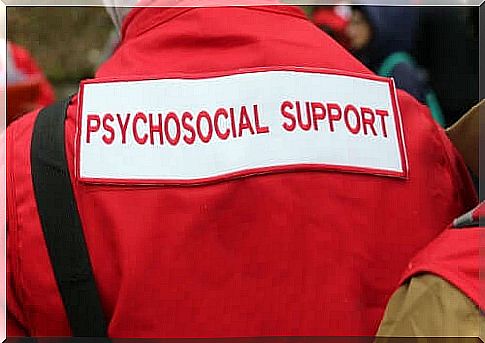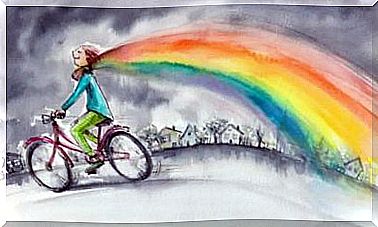Psychosocial Support After Disasters

The design and goal of psychosocial support during and after disasters is intended to minimize the psychological and social consequences of a catastrophic event on people and their community.
Psychosocial intervention teams usually consist of coordinators, psychologists, and volunteers with specific types of training. They work at two different times.
The first team is working after a disaster. The second before they happen, through preventive work that aims to reduce possible vulnerable points in a given society. What one may wonder, however, is what a disaster really is.
The definition of a disaster
Disasters are both natural and man-made events that lead to a common threat that is so great that it exceeds an individual’s ability to respond to it.
Scientific evidence suggests that natural disasters do not leave as many psychological consequences as those provoked by humans. Yet both of them have many ripple effects and can destroy an entire society, which is why they cause individuals to suffer.
Psychosocial support after disasters in local communities

After a disaster, several variables can affect a given emergency for better or worse. Society must be able to rebuild what they have lost from a psychosocial perspective. Thus, they must:
- Have a sense of belonging. Society must not feel that they are victims, but rather survivors.
- Work towards a social climate. This is related to the recognition and validation of the suffering experienced by society.
- Stay in control of your life to avoid helplessness and addiction.
- Restore their old routines to reduce the feeling of insecurity.
- Develop instrumental elements. Here we refer to dignity and social support.
- Know that they have a future.
Psychosocial support for people
As soon as they arrive at a disaster area, psychosocial support teams must take action to help anyone whose psychological resources do not allow them to cope with what has just happened. Thus, they will have priority.
This is often known as psychological first aid . It is quite intense and short-lived and does not necessarily respond to a direct request from the affected person. The teams can follow their own initiative and offer to help. However, such actions must follow seven principles:
- Safety. To begin, the team must ensure the physical integrity of the relatives.
- Proximity. They must provide all psychosocial support in environments close to the disaster area.
- Immediacy. This is a very important factor in preventing chronic symptoms.
- Normalization. Broadcast survivors who experience normal reactions to abnormal situations.
- Activation. Implement the strategies each has for confronting situations. It is also important to activate their social networks so that they can support them and help them prevent the situation from getting worse.
- Simplicity. They should provide information in a simple and concise way so that the relatives can process it better.
- Flexibility. Psychosocial care must adapt to specific situations and change the strategies that have been established in advance, if necessary.
What should you do if you want to help during a disaster?

When an incident of this magnitude occurs, dealing with a survivor without training and references can be a goal you do not know how to reach. For example, what is it correct to say? What should you do? What is inappropriate?
Here are some of the key recommendations for psychosocial support:
- First and foremost, do not make promises that you cannot keep.
- Respect and appreciate the silence.
- Stay as calm as you can.
- Allow and validate all the ways the survivor expresses himself emotionally.
- Respect the religious belief, or lack thereof, of each individual.
- Do not force an affected person to do something they do not want to do under any circumstances.
- Avoid confrontations with any relatives.
- Do not be strict with or instruct an affected party about the incident. Instead, you should encourage them to enter into a dialogue at a transcendental level.
- Listen if a survivor wants to talk.
- Finally, do not ignore threats of suicide or murder under any circumstances.
To reflect a little in the end, when you think of a disaster, you usually think of an event that happens within a limited period of time. Some examples could be an earthquake, a volcanic eruption, a traffic accident, a major industrial accident, etc. However, this is not always the case. A disaster can also be a long war or famine, as well as any other phenomenon that goes on for a while.
The work of psychosocial support teams during disasters thus does not only consist of offering support at certain times. In many cases, these types of interventions must continue as needed until society returns to the same level of functioning as it had before the disaster.









